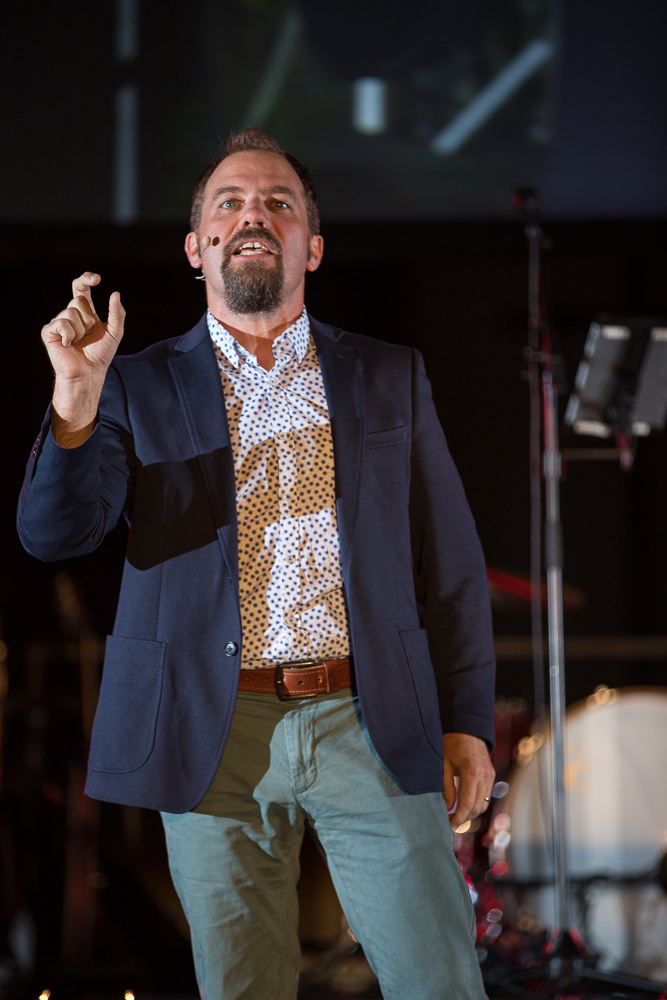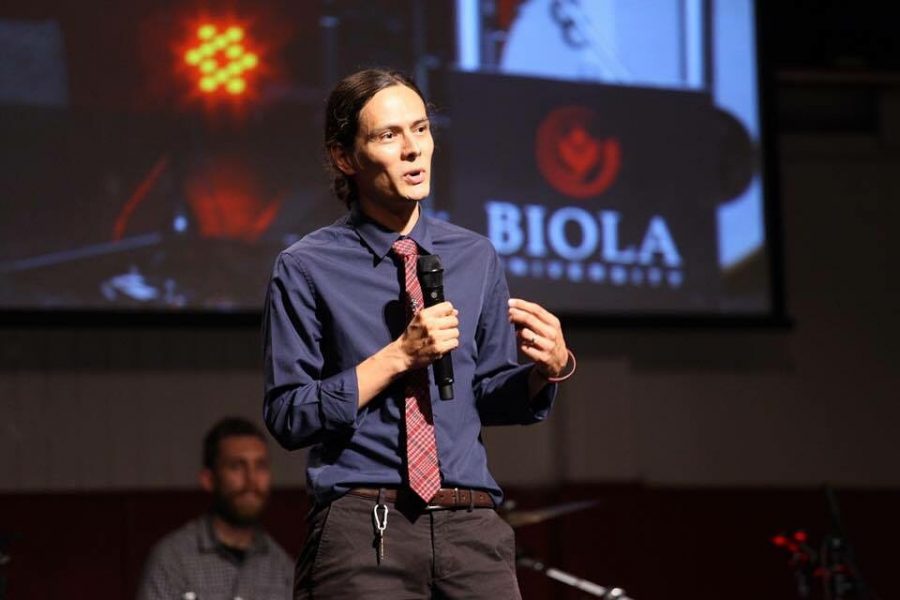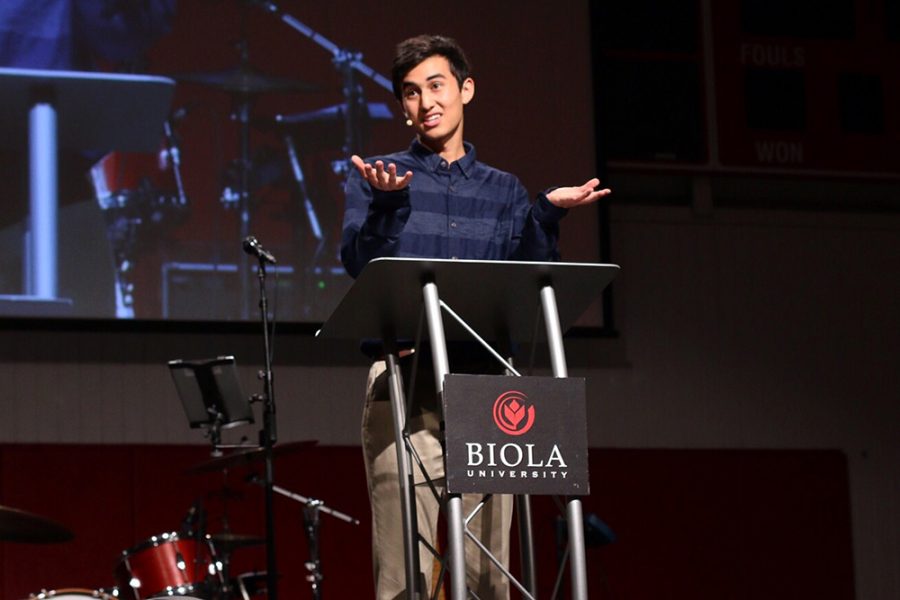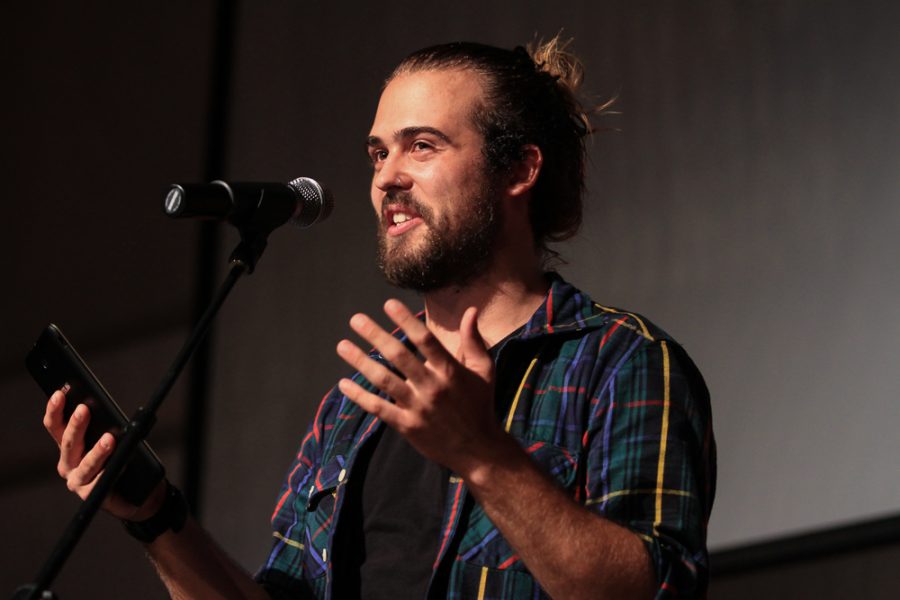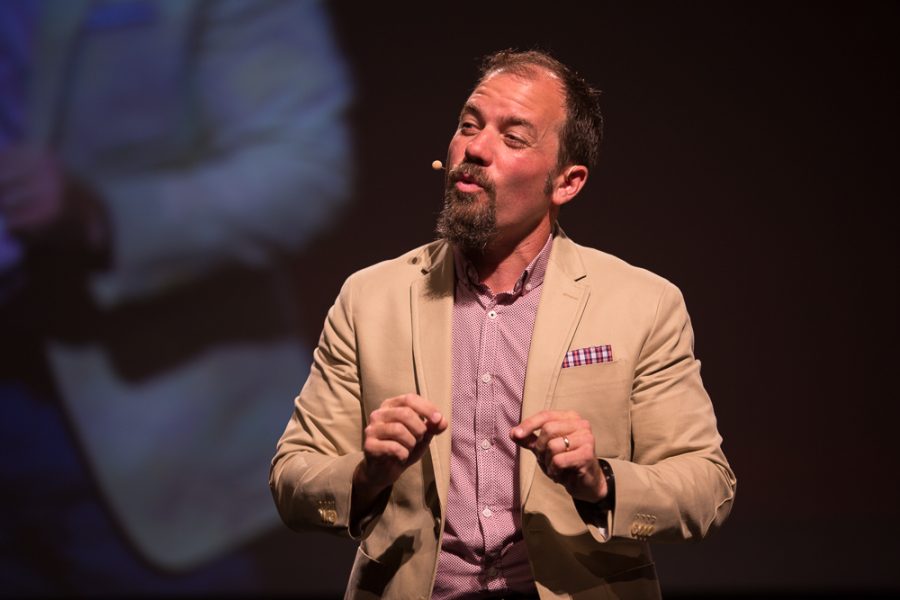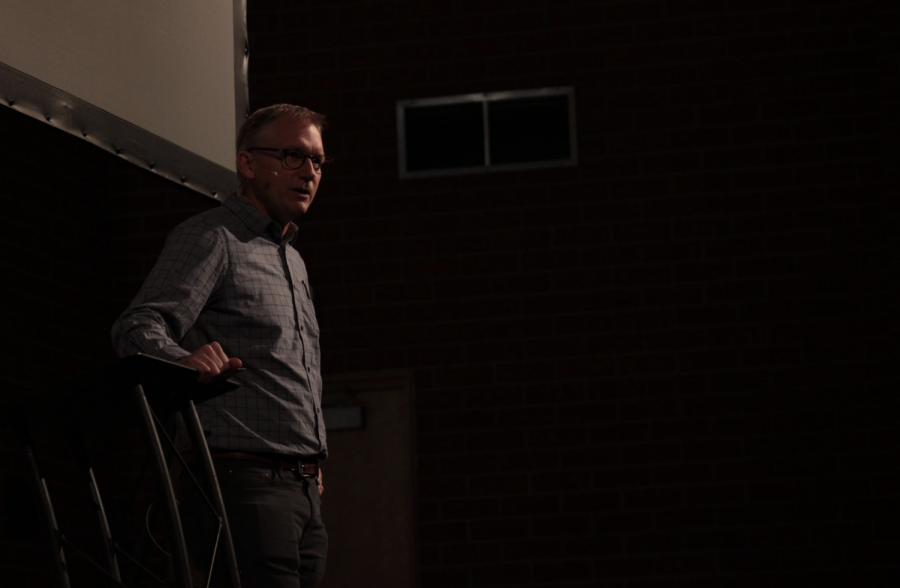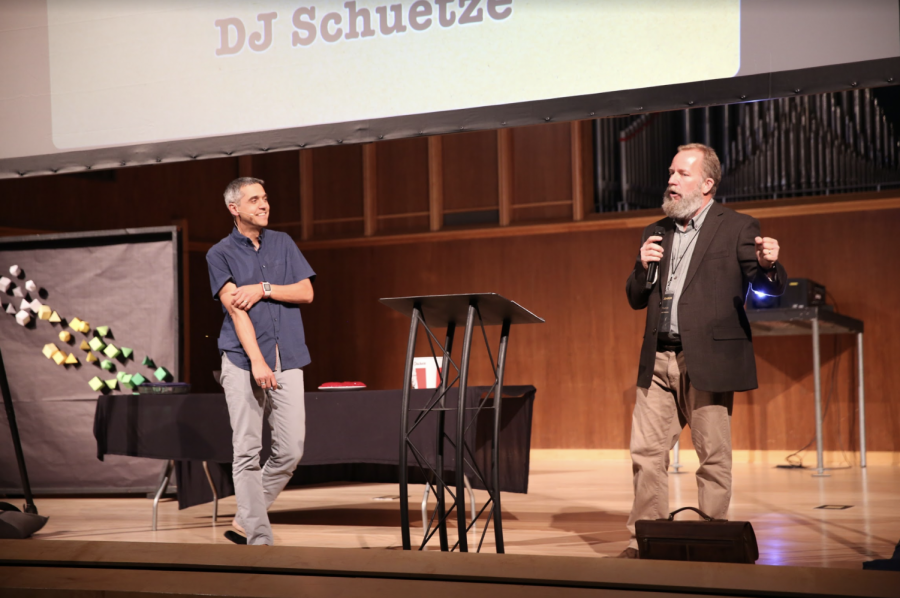“We are what we love” James Smith exclaimed as he reminded the audience of the theme of his speech yesterday. James K.A. Smith, professor of philosophy at Calvin University, starts off the second day of the 2015 Torrey Conference with his message appropriately titled, “You Might Not Love What You Think: Taking a Liturgical Audit of Your Life.”
Smith continues to recap the message he delivered yesterday on Metzger lawn, where the session was interrupted by an unexpected rainstorm and a flash of lightning. His voice echoes throughout Chase gymnasium, as he reminds the audience of the simple question Jesus asks in the Gospel of Mark, “What do you want?”
Smith proceeds to enlighten the audience with a description of Russian filmmaker, Andrei Tarkovsky’s 1979 post-apocalyptic film, Stalker. He mentions the three characters in the film: the stalker, the writer and the professor. Summarizing the plot of the film, Smith describes how everyone in this world wants to get to a room in a mystical area called, “the zone.” Everyone wants to reach the zone because it is where “you get what you want.” As the stalker leads the professor and the writer to the zone, Smith explains that the writer and the professor suddenly get cold feet.
“What if I don’t want what I think I want,” Smith said.
What if what we want really represents the deep desires and longings we have hidden in the recesses of our mind, asked Smith.
Sometimes a man does not do what he thinks he wants to do, Smith metaphorically proclaims as he compares the state-of-mind of the movie characters to reality. Smith states we do not know what we really want, and urges us to take a “liturgical audit of your life.” Liturgies are “love-shaping practices.”
Smith reminds the audience of the idolatry present in our culture.
“The mall is the most religious place in the city…because the mall doesn’t care what you think.” Smith said as he explains the “gospel of consumerism” embedded in a culture “trying to change what you love.”
Advertisements and marketing aims to tell people people what they are supposed to think and who they are supposed to be. He reminds us to examine our lives, and examine our wants by “taking a liturgical audit of your life.”
Smith ends his message by telling the audience it is important for us to find space to meditate and worship is the “entire repertoire of what the people are called to when gathered around the body of Christ.”



